 W
WArthur Edward Herbert Bleksley was a South African Professor of Applied Mathematics and an astronomer. Bleksley's early research involved the astrophysics and astronomy of variable stars. He encouraged science awareness in South Africa by publishing articles about science, by being on a popular radio show, and through his presentations at the Johannesburg Planetarium.
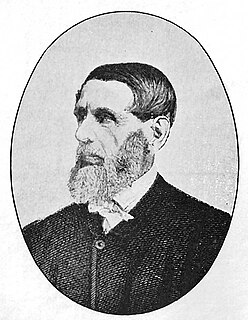 W
WJacobus Nicolaas Boshof was a South African (Boer) statesman, a late-arriving member of the Voortrekker movement, and the second state president of the Orange Free State, in office from 1855 to 1859.
 W
WHerman Charles Bosman is widely regarded as South Africa's greatest short-story writer. He studied the works of Edgar Allan Poe and Mark Twain and developed a style emphasizing the use of satire. His English-language works utilize primarily Afrikaner characters and highlight the many contradictions in Afrikaner society during the first half of the twentieth century.
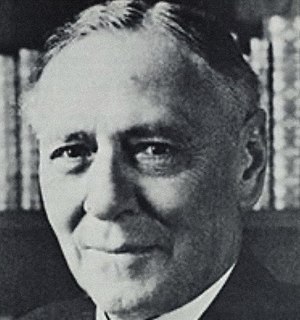 W
WNicolaas Jacobus de Wet, PC, QC was a South African politician, lawyer, and judge who was Chief Justice of South Africa and acting Governor-General from 1943 to 1945.
 W
WJohn Edgcumbe Doyle was a British World War I flying ace credited with nine confirmed victories. He was shot down on 6 September 1918 and taken prisoner and his right leg was amputated. He was repatriated on 20 December 1918 and invalided out of the RAF.
 W
WThe Reverend Stephanus Jacobus du Toit was a controversial South African nationalist, theologian, journalist and failed politician. In his younger years Du Toit did much to promote the Afrikaans language as a symbol of Afrikaner nationalism. Apart from the years 1882-8 when he was Superintendent of Education in the South African Republic, he lived in or near the town of Paarl in the Cape Colony. Disillusionment with the Kruger regime led him, in later years, to moderate his views. He was instrumental in initiating the translation of the Bible into Afrikaans and was a proponent of the Afrikaans language. He died an outcast.
 W
WJohn Fairbairn was a newspaper proprietor, educator, financier and politician of the Cape Colony.
 W
WAbraham Faure was a clergyman and author from Cape Colony, part of what later became South Africa.
 W
WRt. Hon. Field Marshal Baron Johan de Fin (1800–1887), was Chamberlain to Franz Josef, Emperor of Austria, an officer in the British German Legion, and Conservator of Forests in the Eastern Cape.
 W
WMajor Charles Sydney Goldman was a British businessman, author, and journalist who served as a Member of Parliament (MP) from 1910 until 1918. There is a Memorial Stone of C.S. Goldman in the yard on the Murray United Church.
 W
WGeneral James Barry Munnik Hertzog, better known as Barry Hertzog or J. B. M. Hertzog, was a South African politician and soldier.
 W
WAgnes Winifred Hoernlé née Tucker was a South African anthropologist, widely recognized as the "mother of social anthropology in South Africa". Beyond her scientific work, she is remembered for her social activism and staunch disapproval of Apartheid based on white supremacy. Born in 1885 in the Cape Colony, as an infant she moved with her family to Johannesburg, where she completed her secondary education. After earning an undergraduate degree in 1906 from South African College, she studied abroad at Newnham College, Cambridge, Leipzig University, the University of Bonn, and the Sorbonne. Returning to South Africa in 1912, she undertook anthropological research among the Khoekhoe people, until she married in 1914.
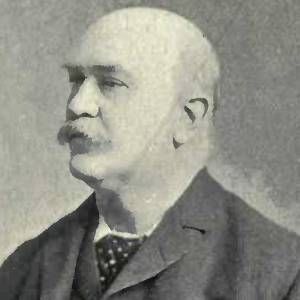 W
WRichard Willis Jameson was a Canadian politician serving as an alderman and 15th Mayor of Winnipeg and as a Member of the House of Commons of Canada.
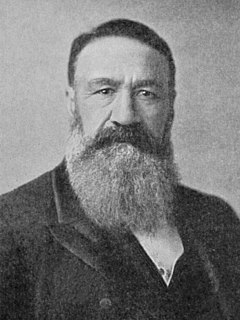 W
WPetrus Jacobus Joubert, better known as Piet Joubert, was Commandant-General of the South African Republic from 1880 to 1900. He also served as Vice-President to Paul Kruger from 1881 - 1883. He served in First Boer War, Second Boer War, and the Malaboch War.
 W
WKhoekhoen are the traditionally nomadic pastoralist indigenous population of southwestern Africa. They are often grouped with the hunter-gatherer San peoples. The designation "Khoekhoe" is actually a kare or praise address, not an ethnic endonym, but it has been used in the literature as an ethnic term for Khoe-speaking peoples of Southern Africa, particularly pastoralist groups, such as the !Ora, !Gona, Nama, Xiri and ǂNūkhoe nations.
 W
WStephanus Johannes Paulus "Paul" Kruger was a South African politician. He was one of the dominant political and military figures in 19th-century South Africa, and President of the South African Republic from 1883 to 1900. Nicknamed Oom Paul, he came to international prominence as the face of the Boer cause—that of the Transvaal and its neighbour the Orange Free State—against Britain during the Second Boer War of 1899–1902. He has been called a personification of Afrikanerdom, and remains a controversial and divisive figure; admirers venerate him as a tragic folk hero, and critics view him as the obstinate guardian of an unjust cause.
 W
WJoseph Storr Lister was a South African forester and Conservator of Forests. He was educated at the Diocesan College in Rondebosch, and in 1885 married Georgina Bain, daughter of Thomas Charles John Bain, the roadbuilder and engineer.
 W
WCecilia Makiwane (1880–1919) was the first African registered professional nurse in South Africa and an early activist in the struggle for women's rights.
 W
WFrançois Stephanus Malan PC, usually called F. S. Malan or just F. S., was a South African politician.
Zachariah Keodirelang "ZK" Matthews was a prominent black academic in South Africa, lecturing at South African Native College, where many future leaders of the African continent were among his students.
 W
WPatrick McLoughlin was an influential newspaper editor of the British Cape Colony, in what is now South Africa.
 W
WSir John Charles Molteno was a soldier, businessman, champion of responsible government and the first Prime Minister of the Cape Colony.
 W
WJohn Charles Molteno Jr. M.L.A., was a South African exporter and Member of Parliament.
 W
WPercy Alport Molteno was a Cape Colony-born lawyer, director of companies, politician and philanthropist who served as a Liberal Member of Parliament (MP) from 1906 to 1918.
 W
WVice Admiral Vincent Barkly Molteno CB was a Royal Navy officer during World War I.
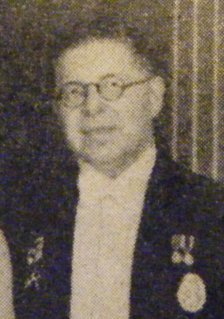 W
WSir Allan George Mossop was a British judge of South African origin who served in China. He was the Chief Judge of the British Supreme Court for China from 1933 to 1943.
 W
WRichard William ("RW") Murray Snr. (1819-1908) was a journalist, editor, newspaper proprietor and politician of the Cape Colony.
 W
WSister Dora Nginza, known as the “Mother of New Brighton", was one of the earliest and most influential pioneers of public health service for black people in New Brighton, Port Elizabeth, Eastern Cape.
 W
WBrian Ivan Cobb Norton, nicknamed "Babe", was a South African male tennis player. He was born in Cape Province, South Africa, and died in Santa Clara, California, United States. At Wimbledon 1921, Norton beat Frank Hunter and Manuel Alonso Areizaga, before having two championship points in the Challenge Round against Bill Tilden but losing in five sets. Norton is one of only two men to hold championship point in a Grand Slam men's singles final and yet not win a title. Norton won the 1923 U.S. National Championships doubles, alongside Tilden. In the singles that year, Norton beat R. Norris Williams in a five set quarter final before losing to Tilden in the semi finals.
 W
WJoseph Millerd Orpen was an influential colonial administrator for the British empire in southern Africa, as well as a local member of the Cape Parliament and the Orange Free State Volksraad. In addition, he was a self-taught anthropologist and a student of indigenous southern African cultures.
 W
WThe farm Ratelgat which was previously known as Luiperdskop, is located on the West Coast of South Africa. The farm has a very strong connection to the Griqua people as it is the site where Griqua prophet Andrew Abraham Stockenstrom le Fleur I is buried.
 W
WJacobus Wilhelmus ("J.W.") Sauer, was a prominent liberal politician of the Cape Colony. He served as Minister in multiple Cape governments, and was influential in several unsuccessful attempts to enshrine equal political rights for black South Africans in the constitution of the Union of South Africa. He was also a strong early supporter of women's rights and suffrage.
 W
WFrederick Schermbrucker (1832–1904) was a soldier and an influential parliamentarian of the Cape Colony. He was a strong pro-imperialist, one of the foremost supporters of Cecil Rhodes and an early leader of the Progressive Party of the Cape.
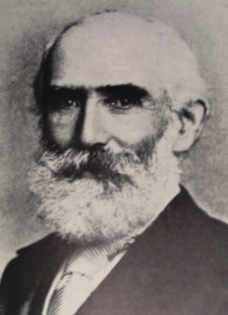 W
WSir Charles Abercrombie Smith was a prominent scientist, politician and civil servant of the Cape Colony.
 W
WPatrick Spence was a South African tennis player. He was born in Queenstown, South Africa. He competed mainly in Great Britain and found his form in hard court tournaments. He notably won the mixed doubles championships at Wimbledon in 1928 with Elizabeth Ryan and at the French Open in 1931 with Betty Nuthall.
 W
WHendrik Bernardus Thom was born in Jamestown, Cape Colony, and grew up in Burgersdorp, South Africa. Because he was the 5th grandchild of his grandfather and namesake with the first names Hendrik Bernardus, his parents decided to call him by the nickname Quintus ("Five") to distinguish him from his cousins; he was known as Quintie Thom throughout his life. He matriculated at Burgersdorp High School and studied at Stellenbosch University. He continued his studies in history in Germany at the Friedrich Wilhelms Universität in Berlin (1928–1929), at the Sorbonne in Paris (1930) and in Amsterdam, researching his doctoral thesis, which he completed on his return to Stellenbosch. The title of his doctoral thesis was: Die geskiedenis van die skaapboerdery in Suid-Afrika.
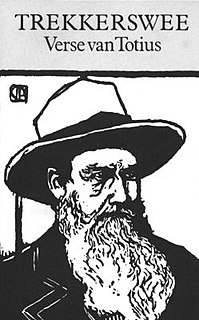 W
WJacob Daniël du Toit, better known by his pen name Totius, was an Afrikaner poet.
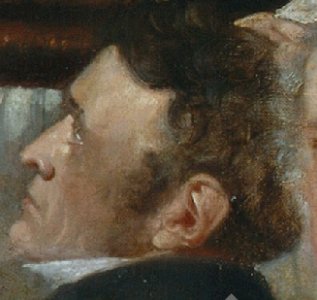 W
WJohn Harfield Tredgold was an English chemist in the Cape Colony in Africa. He held a number of voluntary roles including Secretary of the British and Foreign Anti-Slavery Society. The suburb of Cape Town called Harfield drew its name from Tredgold's middle name.
 W
WGert Wilhelm "Tank" van Rooyen, also known as George van Rooyen, was a South African international rugby union and rugby league footballer. His position was at lock.
 W
WAlbert Edward Ernest Vogler was a South African cricketer. A leading all-rounder skilled both at batting and bowling, Vogler played cricket in South Africa prior to becoming eligible to play for Middlesex County Cricket Club in England after serving on the ground staff of the Marylebone Cricket Club at Lord's. He rose to prominence during the 1906 home Test series and then in England the following year: he was described during the latter as the best bowler in the world by Tip Foster, and named a Wisden Cricketer of the Year.